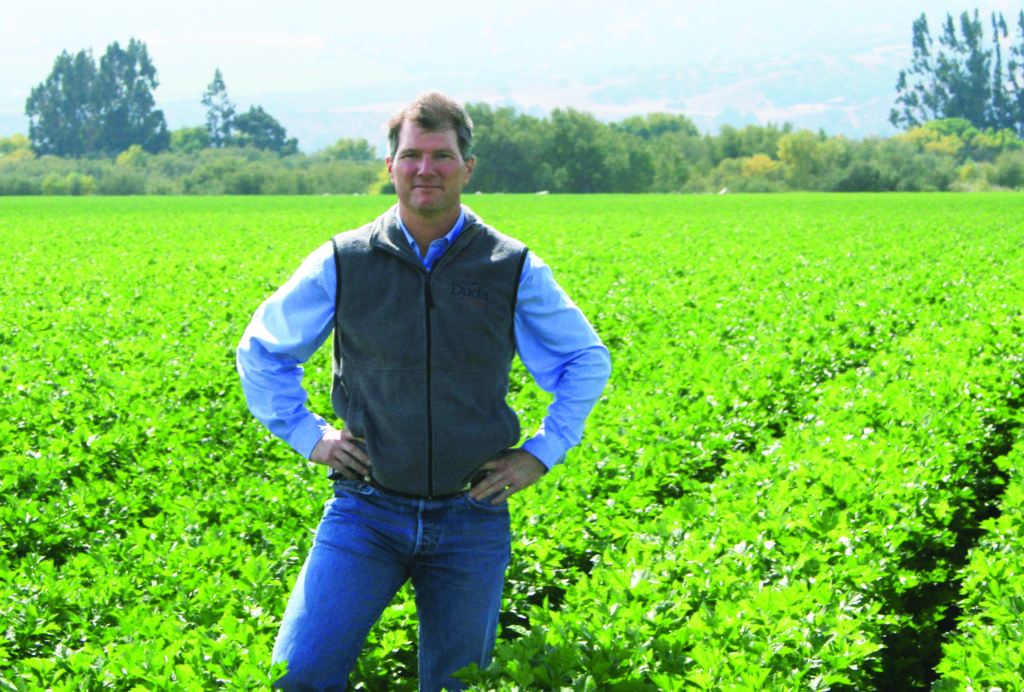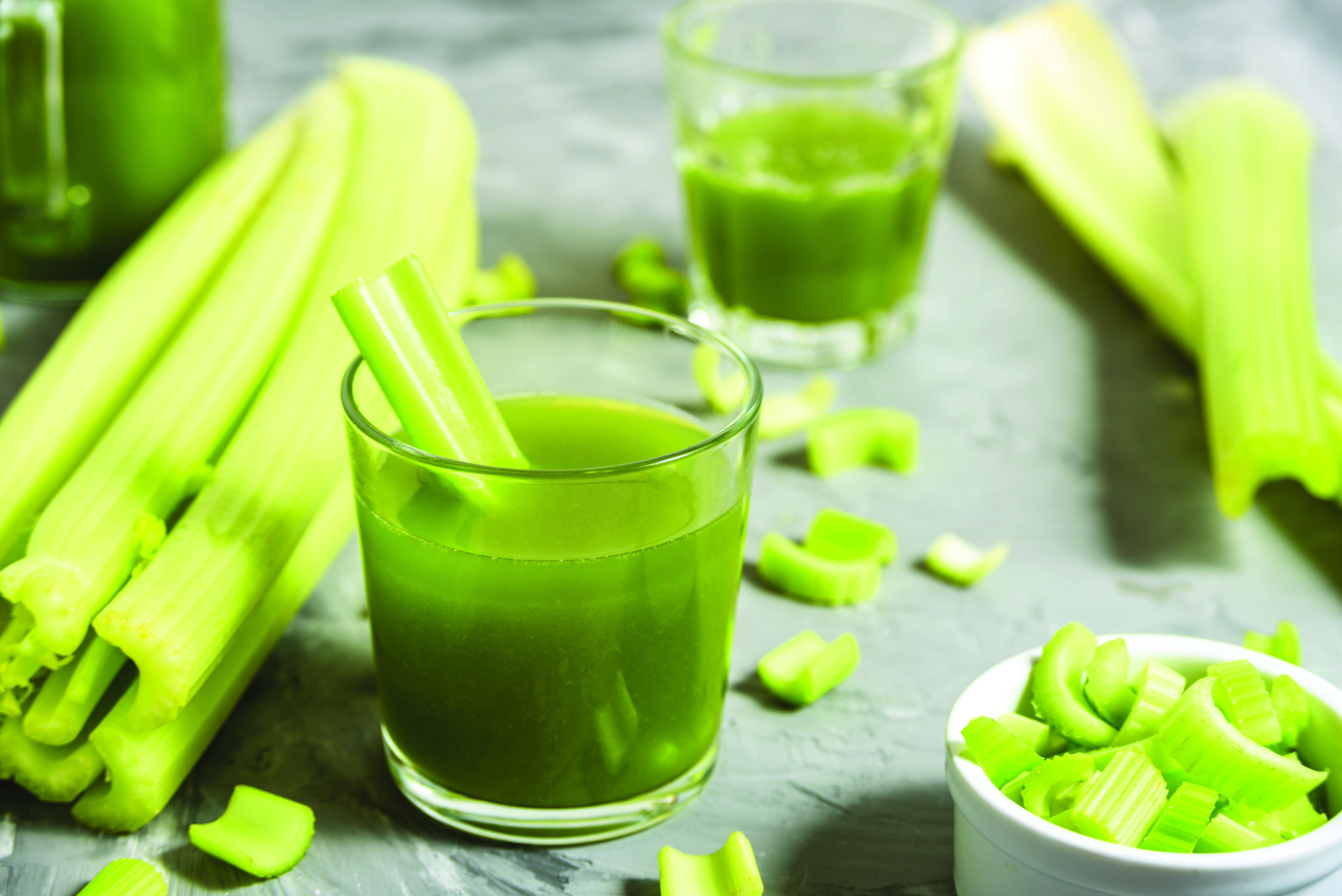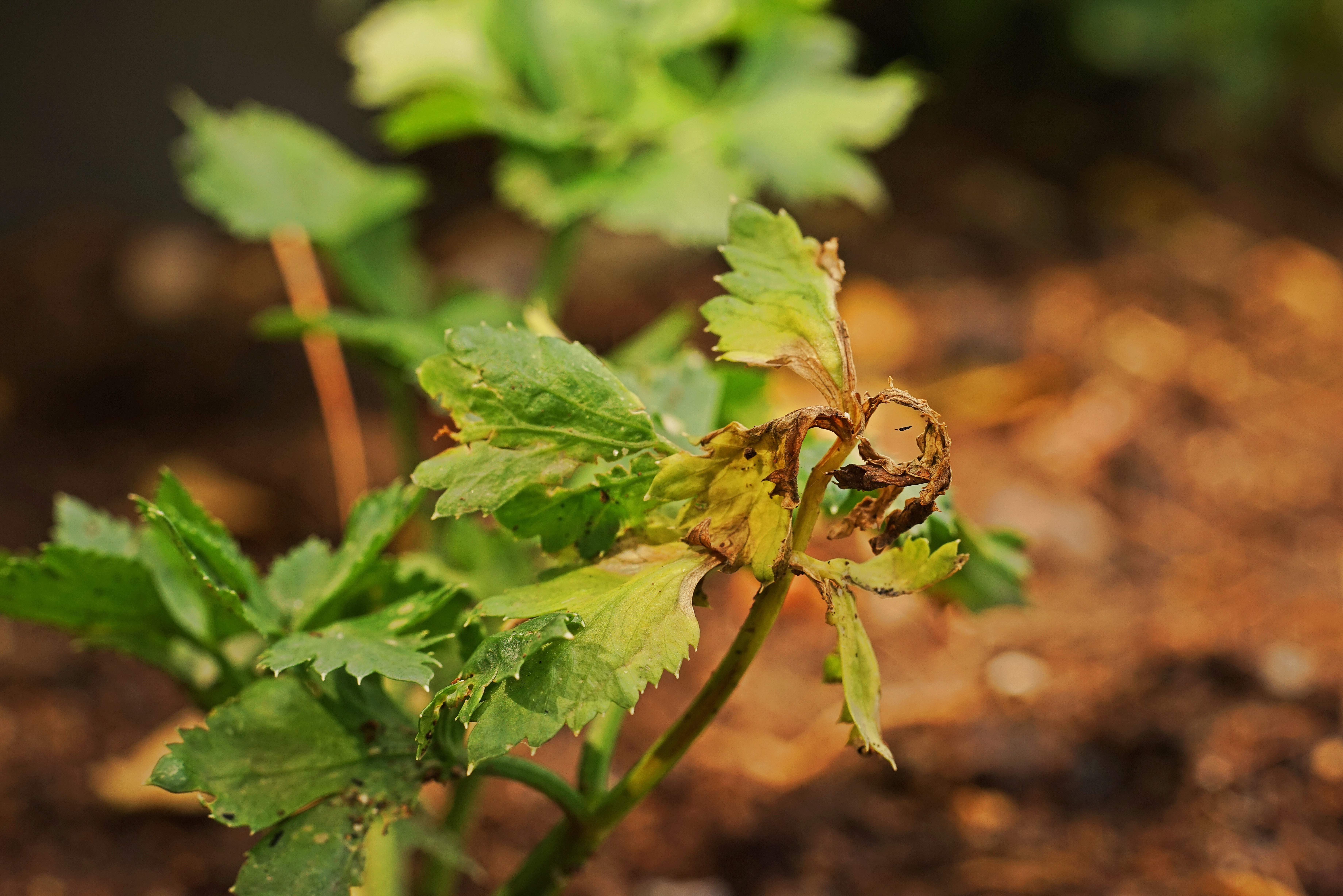
May 29, 2019Celery growers to harvest rewards of diet trend
Vegetable growers are gearing up to supply consumers’ growing interest in celery as a diet food.
Sammy Duda is the senior vice president of national operations for Duda Farm Fresh Foods, the parent company of Dandy Celery, which is grown in Arizona, Florida, California and Michigan. He said celery prices are at an “all-time high” due to low supply and high demand.
“Supply is significantly short due to the amount of volume and yield we lost from weather on both coasts/growing locations,” Duda said in a statement. “In the West, warmer temperatures late last year caused the crop to mature early, which was followed by colder than normal temperatures, rain and wind, which slowed and damaged the celery crop. We are still seeing the adverse effects of this weather on the crop and expect it (to) continue into early summer.
“In the East, the driest fall on record combined with warmer than normal temperatures adversely affected the size and weight of the celery crop and we have never recovered from the effects of this weather. The celery market as a whole is afflicted with considerable crop/yield loss.”
Demand is higher in 2019 in part due to consumer interest in diets that call for blending fresh celery into a healthful juice drink. A new book, “Celery Juice: The Most Powerful Medicine of Our Time Healing Millions Worldwide” by self-described “medical medium” Anthony William, was set for release May 21.
Duda Farm Fresh Foods has started sharing celery juice recipes on its social media accounts.
“The celery juicing trend has definitely impacted sales and this is due to a number of celebrity and influencer endorsements that are highlighting the health benefits of celery,” Duda said. “This has attracted a new consumer that has not ever bought celery before, and are buying at a higher price. Snacking convenience, on-the-go shoppers and the celery juicers are looking for easier ways to snack and increase vegetable consumption.”

Duda isn’t the only one to notice the increased demand.
“The advent of home fresh celery juicing has created a paradigm shift in demand,” said Gary Wruble, general manager of the Michigan Celery Promotion Cooperative. “The challenges the supply side has faced this winter have been outpaced by this newly created niché demand. The Michigan growers may enjoy better returns on the celery acres in 2019.”
Although Duda also grows in Arizona and Florida, California and Michigan are the foremost celery production areas, the only two states where the USDA tracks celery production. In 2018, California growers harvested 28,300 acres for a value of about $424.5 million; Michigan harvested 1,900 acres for a value of about $19.5 million.
Celery harvests in different regions of California – the south coast counties of Ventura, Santa Barbara and San Luis Obispo and the central coast counties of Monterey, San Benito and Santa Cruz – cover the entire calendar year, according to the University of California.
Michigan production usually runs July 1-Oct. 20, Wruble said. The majority of the Michigan celery acres are grown near the west Michigan towns of Hudsonville, Hamilton, Byron Center, Decatur and Fremont.
“The Michigan growers may be able prices in the early Michigan campaign,” he said. “The market should support higher prices in early July prior to production availability from Ontario/Quebec.”
How long the prices continue is anyone’s guess.
“Like any trend, there is no way to tell if it will be a long-lasting one,” Duda said. “That said, as demand for plant-based and convenience items continues to elevate, we do anticipate that celery will continue to be a key player. Change does not happen overnight – supply will improve once we respond and adjust to this new normal of celery consumption.
“Working with Mother Nature, this will take roughly six months for supply to meet the new demands of the category.”
New Michigan research

Michigan State University (MSU) researchers have stayed active in making sure growers in the Great Lakes State have the latest tools and research available for growing celery.
MSU’s Bernard Zandsta, a horticulture professor who specializes in weed control, spoke at the most recent Great Lakes Fruit, Vegetable & Farm Market EXPO in Grand Rapids. Newly-labeled weed killers for Michigan celery growers include:
- Zidua 85 WDG (pyroxasulfone), which controls annual grasses, common groundsel, common purslane, ladysthumb, marsh yellowcress, pigweeds, Virginia pepperweed and shepherdspurse.
- Prowl H20 3.8 CS Pendimethalin, which controls common lambsquarters and common purslane.
MSU Extension specialist Mary Hausbek also spoke at the EXPO about new research she had done into fungal celery crown rots.
Hausbeck’s graduate student, Sara Getson, said an unusually wet season last year led to fungal problems for some celery plants, with symptoms similar to those for fusarium yellows, “which devastated growers in the decades prior to the introduction of resistant celery cultivars.”
It’s not certain whether or not the resistant cultivars’ symptoms are being caused by the same fungi.
“The Hausbeck lab sampled from a number of different fields and growers in the state between the months of July and October 2018,” Getson said. “Back in the lab, tissue samples were taken from the vascular system of the celery petioles. From those samples, fusarium species were the predominant and most reliably isolated fungi. Work in the lab is currently being conducted in order to identify the specific fusarium species present and to determine whether this organism is the same as the fungus responsible for fusarium yellows in the past or not.”
Hausbeck’s trials showed the fungicides Quadris and Quadris Top as providing good control, although Quadris Top has not yet been labeled for use in Michigan, Getson said.
– Stephen Kloosterman, associate editor
Above: Sammy Duda is the senior vice president of national operations for Duda Farm Fresh Foods, the parent company of Dandy Celery. Photo: Duda Farm Fresh Foods
















